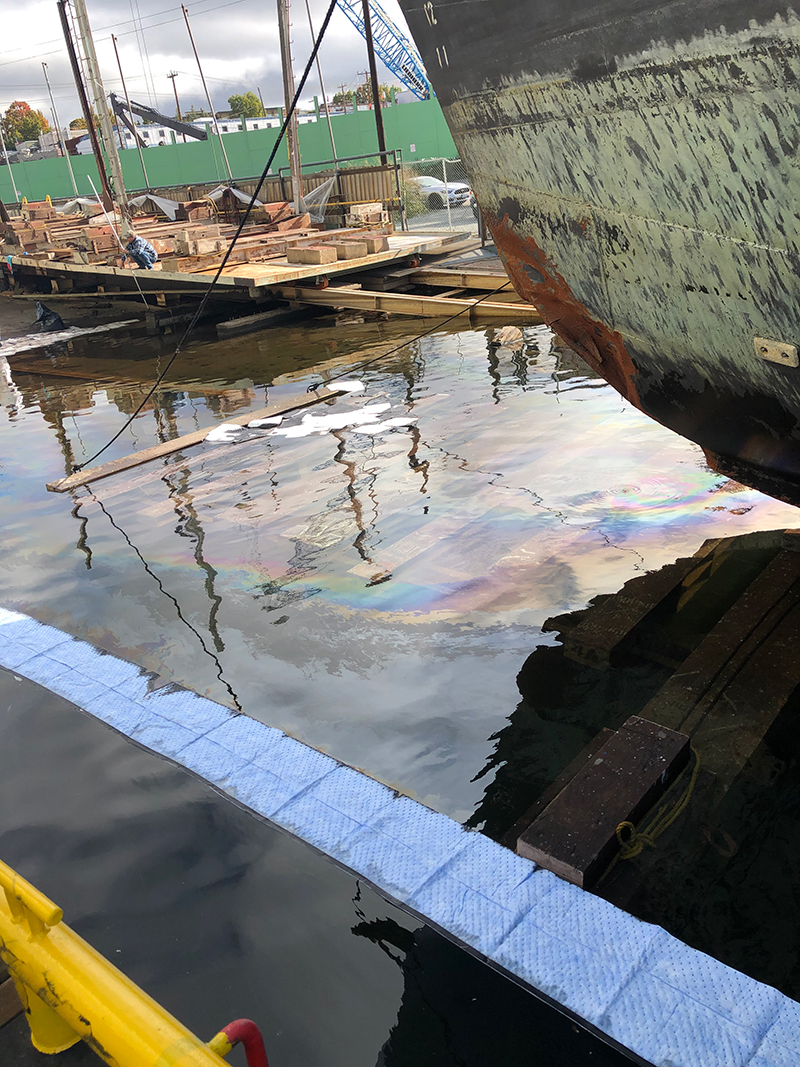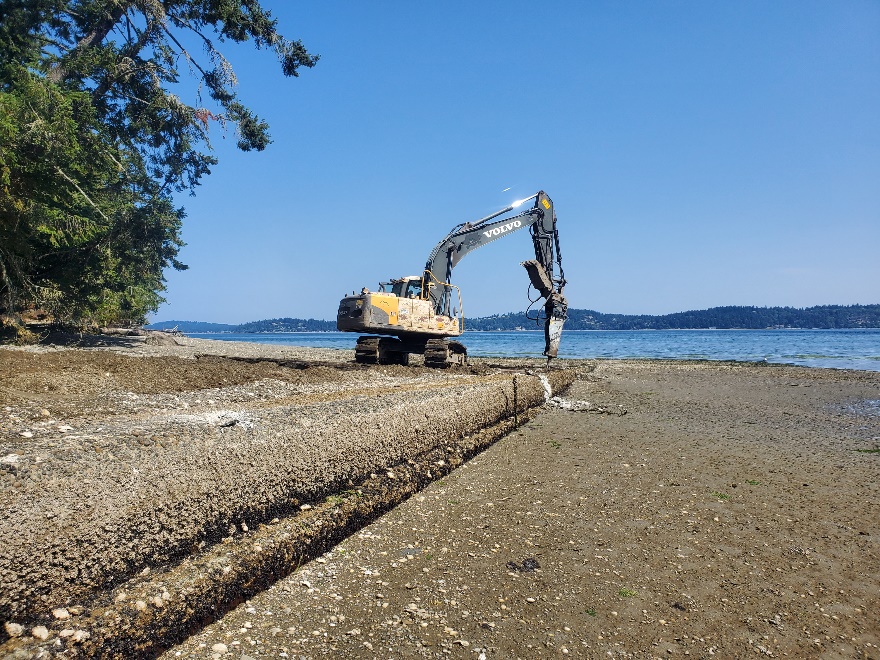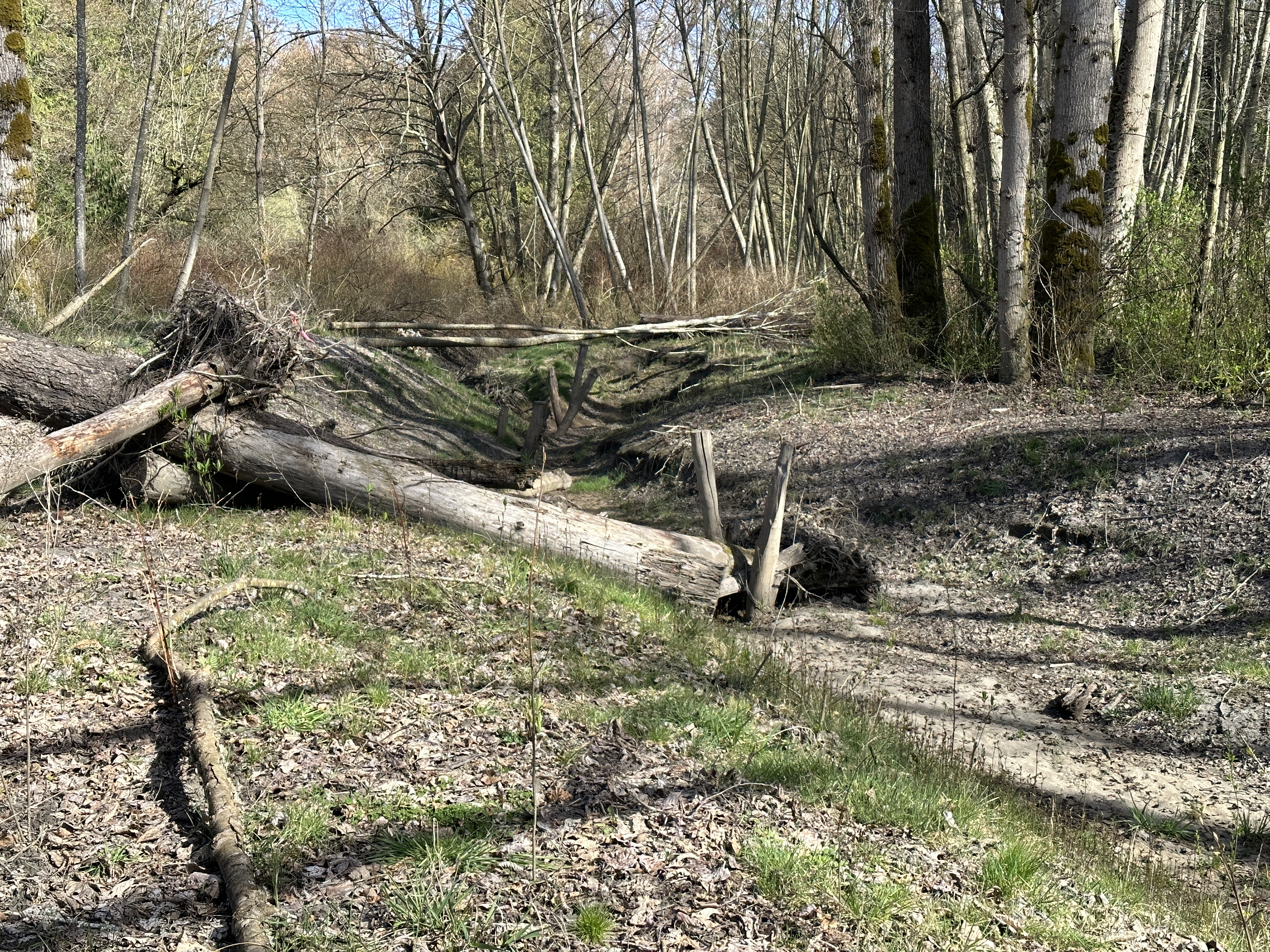
Sheen comes off the Alaska Chieftain in 2020. The penalty that resulted from this spill was deposited in Ecology's grant funding account.
Oil spills are a threat to human health, our environment, and economy. Washington has suffered many oil spills, large and small, that have had a lasting impact on our state. When oil is spilled, the responsible party is liable for the cleanup and may incur a penalty for spilling to state waters. When paid, the money is deposited into the John Bernhardt account, named for the manager of the Spills Prevention and Policy section in the Department of Ecology in 1994.
A spiller may also need to reimburse the public for the damages the spill caused to state natural resources such as water quality, fish and wildlife, habitat and cultural areas, beaches, and shellfish beds. The money from a Natural Resource Damage Assessment (NRDA) goes into the state RDA account.
When either account reaches $100,000 or more, the Department of Ecology solicits grants for those interested in environmental restoration work around the state.
Ecology is now opening the application period for the 2023 Restoration Grants. Local and tribal governments, state and federal agencies, and public benefit non-profit organizations are all eligible. Private entities and ineligible organizations can partner with another eligible group. Previous funded projects include salmon habitat restoration, livestock exclusion fencing, derelict crab pot removal, land acquisition, and stormwater improvement projects. These are reimbursable grants, meaning that applicants must spend their own funds and will be reimbursed afterward.
“Oil spills can cause a lot of harm to our aquatic environment, but these grants help fund projects that reverse many types of environmental damage. There is a variety of work that can be funded, and I encourage all who are eligible to apply,” said Geoff Baran, NRDA lead and Grant Administrator with the Department of Ecology.
Before: Removal of the seawall along a beach in McNeal Island.
One example of a successfully funded proposal is the Milewa Creek Marine Shoreline Restoration project. The Washington State Department of Fish and Wildlife demolished and removed a 200-foot-long concrete structure from the estuarine area of Milewa Creek on McNeal Island. Removal of this structure improved intertidal function for juvenile salmon habitat in Puget Sound.
Restoration work in Skagit County using logs and fresh planting to create salmon habitat.
Another example is the Skagit Forks wetland reconnection project. This grant funded the planting of 10,000 native trees and shrubs in newly restored riparian area, and rejoined an isolated wetland to the Skagit River and Britt Slough.
One key addition to this year’s grant application is a metric on environmental justice. Environmental justice is a priority for the governor, this administration, and the Department of Ecology. If a project has a strong environmental justice component and can demonstrate consultation with historically overburdened groups, it will be factored into the score.
Interested in applying? The application period runs from April 4 to May 4, 2023, at 5 p.m. Visit the Department of Ecology website for more information. Funding will be awarded approximately July, 2023.



